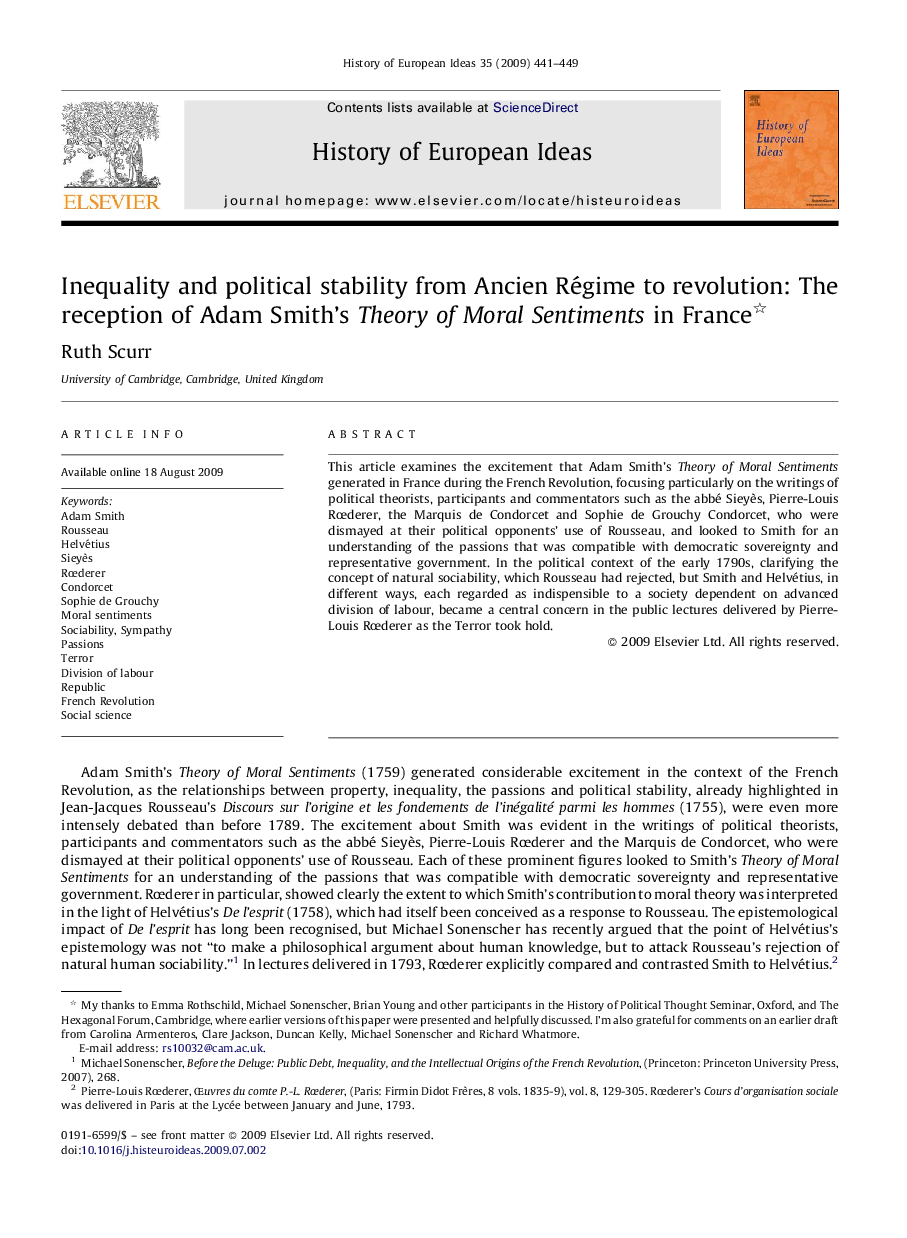| Article ID | Journal | Published Year | Pages | File Type |
|---|---|---|---|---|
| 1159079 | History of European Ideas | 2009 | 9 Pages |
Abstract
This article examines the excitement that Adam Smith's Theory of Moral Sentiments generated in France during the French Revolution, focusing particularly on the writings of political theorists, participants and commentators such as the abbé Sieyès, Pierre-Louis RÅderer, the Marquis de Condorcet and Sophie de Grouchy Condorcet, who were dismayed at their political opponents' use of Rousseau, and looked to Smith for an understanding of the passions that was compatible with democratic sovereignty and representative government. In the political context of the early 1790s, clarifying the concept of natural sociability, which Rousseau had rejected, but Smith and Helvétius, in different ways, each regarded as indispensible to a society dependent on advanced division of labour, became a central concern in the public lectures delivered by Pierre-Louis RÅderer as the Terror took hold.
Keywords
Related Topics
Social Sciences and Humanities
Arts and Humanities
History
Authors
Ruth Scurr,
